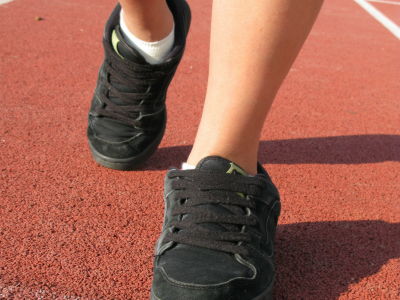Why do some people have no effect on caffeine even when they drink coffee?

Journalist Seo Han-na, who has never felt the effects of caffeine and can sleep without any problem even after drinking coffee at 10 p.m., has compiled information about why some people are not affected by caffeine. Masu.
Why some people are resistant to the effects of caffeine - The Washington Post

Mr. Seo raises several points.
·gene
The gene ``CYP1A2,'' which is involved in metabolism, also controls the enzyme responsible for decomposing and removing caffeine, and half of the population has two copies of CYP1A2, which allows caffeine to be metabolized quickly. . The remaining 40% have one copy, so their metabolic rate is slow, and the remaining 10%, who do not have a copy, have an extremely slow metabolic rate.
Caffeine's 'half-life' is between 2 and 8 hours, depending on its metabolic rate. In other words, it takes between 2 and 8 hours for your body to eliminate half of the caffeine in your body. However, it seems that the rate of caffeine metabolism is not the only factor that affects how you feel when drinking caffeinated beverages.
·brain
According to Manuel Diaz-Rios, director of the neuroscience program at Bowdoin College in Maine, caffeine works by binding to adenosine receptors in the brain and inhibiting their activation.
The number of adenosine receptors in the brain is determined by genetics and the amount of caffeine ingested on a daily basis, and the number of adenosine receptors increases in people who regularly drink coffee.
Díaz-Rios says some people have more adenosine receptors than others even under normal circumstances, and even if you drink too much coffee, caffeine can activate all adenosine receptors. It seems that caffeine may not be as effective because it cannot inhibit this process.

・Effect on the heart
Whether caffeine is effective or not depends on its effects on cardiovascular disease, and people who metabolize caffeine slowly have a higher risk of heart attack as their coffee intake increases. This trend was not observed in people who metabolized caffeine quickly.
People who are slow metabolizers of caffeine and consume a lot of coffee are also at increased risk for other diseases such as high blood pressure and kidney disease. The reason is that caffeine remaining in the blood may have some effect on body tissues, but the exact mechanism is not known.
・Influence on exercise
Because caffeine is thought to improve athletic performance, researchers thought that people with slower metabolisms of caffeine, where caffeine stays in the body longer, would benefit more, but the opposite was actually the case.
A study looked at changes in athletic performance after consuming caffeine in people with different metabolic rates, and found that those with faster metabolisms performed better in a cycling time trial, while those with slower metabolisms performed worse. This has been shown. The reason that slow metabolizers performed worse was because caffeine is a vasoconstrictor, which reduces blood flow to muscles.
In addition, a study conducted on 35 male cyclists analyzed the effect of caffeine on performance, and found that even those who metabolize caffeine quickly are affected in the same way as those who are slow metabolizers. I understand that. However, when caffeine is metabolized quickly, the body breaks down the caffeine quickly and it doesn't stay in the body long enough to cause any negative effects.
A forum related to this article has been set up on the GIGAZINE official Discord server. Anyone can write freely, so please feel free to comment!
• Discord | 'Is caffeine effective? Is it not so effective?' | GIGAZINE
https://discord.com/channels/1037961069903216680/1163764684877471754
Related Posts:
in Science, Posted by logc_nt







